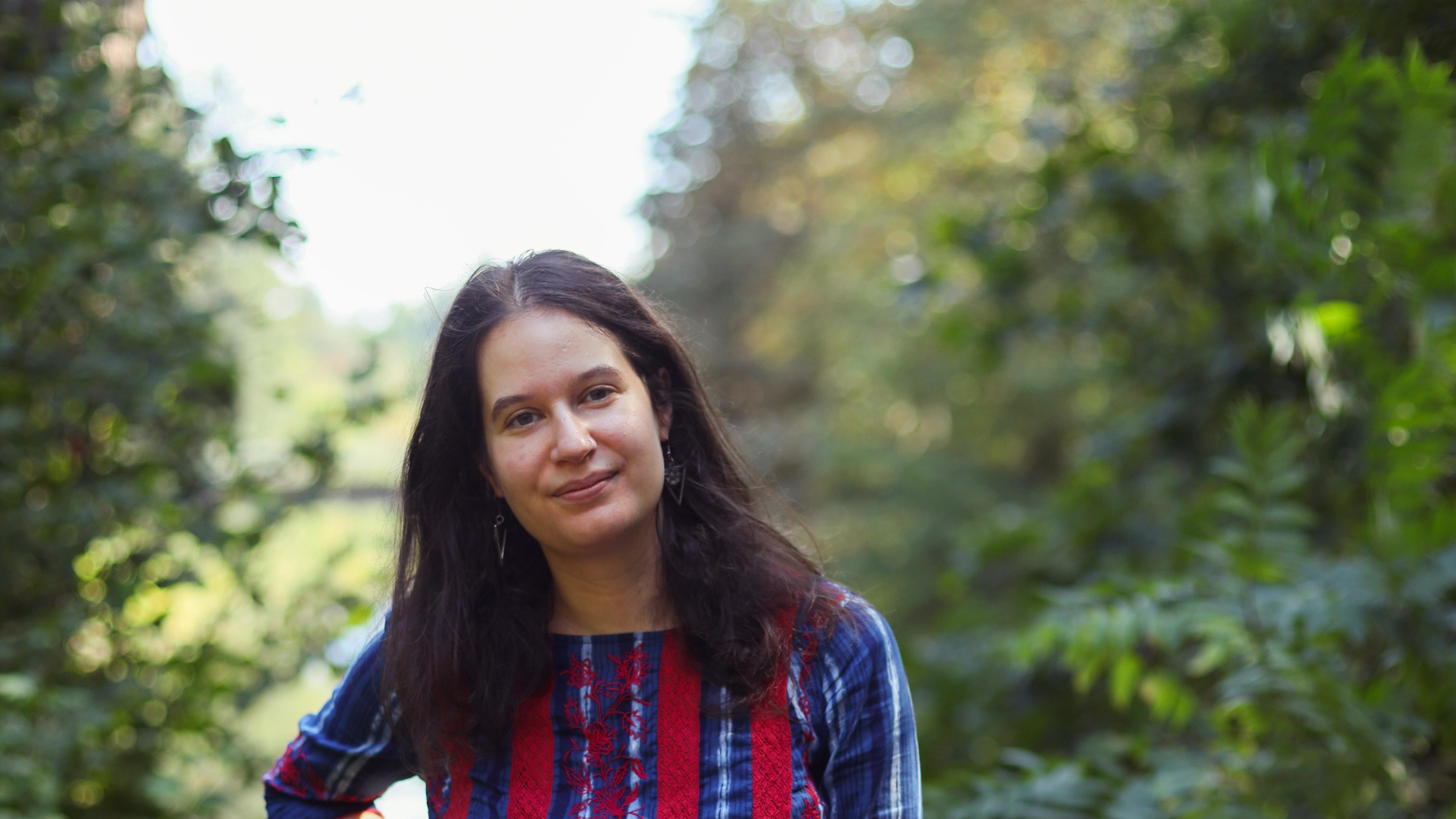Portland writer Zoe Ballering, author of the new short story collection There Is Only Us (University of North Texas Press, 192 pages, $14.95), attended her first writing group in high school, where she fell in love with storytelling and discovered the power of workshopping.
After majoring in English, she pursued an MFA in creative writing from Western Washington University, where she met what already felt like a lifelong writing group. Though she’d heard horror stories about MFA programs, her experience couldn’t have been more positive.
“I’d always hear people say, ‘You’re gonna become an automaton, you’re gonna have to write in a certain way in your program.’ But I didn’t find that at all,” Ballering tells WW. “I met fellow writers who I’m still friends with, whom I still share my work with.”
Ballering is far from an automaton. Her work is imaginative and speculative, playing with themes like loneliness, pain and what it means to be human. Characters are at times otherworldly yet believably, lovably real.
Ballering first began publishing short stories in literary outlets like Craft and Electric Literature—and once her story “Double or Nothing” won the 2021 Rougarou Fabulism & Speculative Fiction Contest, she was on a roll. She subsequently submitted a manuscript of There Is Only Us for the 2022 University of North Texas’ Katherine Anne Porter Prize in Short Fiction and won.
There Is Only Us examines ties between family, young love and, as Ballering notes, mothers. She wrote the collection’s two main mother-themed stories, “Mothers” and “Ark,” around the same time.
The latter is a modern look at Noah’s ark and features Karis, a young woman who is in charge of the ark’s bird pairs and mistakenly breaks the two-by-two rule when she gathers two roosters instead of a rooster and a hen. This rookie mistake forces the ark to make a U-turn before the flood destroys life on earth, so the chosen ones circle back to the same place Karis got the roosters in the first place: her mother’s home.
The inspiration behind the story? “When I was a kid, I was just obsessed with chicken sexing and how that’s actually a job,” Ballering says. “You can make great money! But, I was fascinated by that process. And so then I thought, what—at least in the Western canon—is the first example of when this would matter?”
Animal sexing aside, the story is really about a young woman who doesn’t take her mother’s mortality as seriously as she should. It’s a look at a common experience: that feeling that one’s loved ones—mothers in particular—will always be around, and the too-late realization that you’ve taken your time with them for granted.
As for “Ark”'s biblical implications, Ballering takes a nuanced perspective. “I do not have a religious background,” she says, “but I’m very fascinated by the question: Is there someone up there? If so, why do they never answer? And why is the world the way it is?”
That’s the theme of “Here I Am,” which inspired the collection’s cover art: a naked mole-rat, another animal that fascinates Ballering. “They don’t experience pain, and I think that is a really fun fact,” she says. “Though I’m not quite sure how you determine that.”
Ballering’s mother works with people experiencing chronic pain, which got her wondering: What if people could somehow not experience any pain? “I think the question [of that story] is, what price would people pay to not experience pain?” she says.
Since Ballering has spent most of her life in the Pacific Northwest, it’s no surprise that many of her stories evoke places in Portland and the surrounding cities or mention them outright.
She says she can picture exactly where certain scenes would take place.
Take “Substances: A School Year,” about a group of high schoolers obsessively revolted by a variety of substances, from “soup-like substances” on the floor to what they perceive as feces or vomit. The story ends with a scene in which one character is walking, all eyes on her. “In my head she’s on 26th and Powell,” Ballering says.
Of course, emotional geography is just as important as physical geography in There Is Only Us. Ballering sums up her collection well: “I think these are stories about navigating relationships and also navigating the lack of closure when our worlds are altered.”
